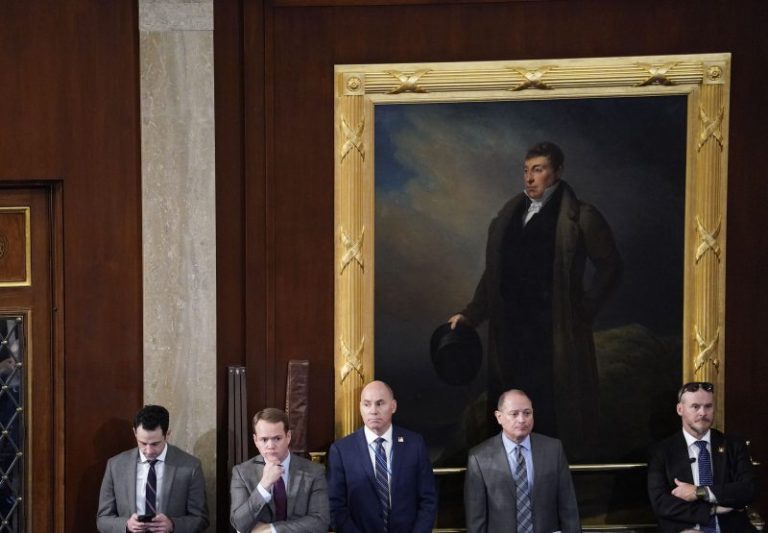As the vote to elect a House speaker stretched into its third evening, a simple question remained: Why are they still doing this?
Kevin McCarthy has had 20 defectors since the third ballot Tuesday, and here we stand, on a 10th ballot with no end in sight.
But the House will keep voting. Because they don’t have many other options.
After the dueling Republican factions met with their allies across the Capitol complex Thursday morning, it became apparent that while a deal had not been struck, no group was rejecting McCarthy’s latest proposal either. Getting to yes would require the Republican holdouts and McCarthy allies to discuss and negotiate face-to-face behind closed doors right off the House floor, even though that has meant McCarthy losing nine straight ballots.
Without a speaker, House members cannot be sworn in. Without any members of the House, there is no rules package to approve. Without a rules package, there are no governing guidelines other than the procedural standards that remain with the House regardless of whether there are members.
If Republicans wanted to stop voting, they would have to make a motion to adjourn, which they did twice Wednesday. The first motion passed easily, but the second involved a fair bit of fireworks, with Democrats nearly blocking the motion. Republicans can only afford to have four defectors on any motion to adjourn, so they have been strategic about when they use that option. As of Thursday night, they didn’t have enough votes to overcome Democratic opposition.
Besides continuing to vote or adopting a motion to adjourn, Republicans have a third option: making a motion to change the balloting system. They could ask to move the voting to a secret ballot, or they could ask the House clerk to change the rules allowing a plurality to win rather than a majority.
But that option also isn’t attractive, nor likely. For one, Democratic leader Hakeem Jeffries has earned the plurality of votes on all nine ballots thus far, keeping his caucus fully united. And the Republicans who are against McCarthy probably would not agree to either type of ballot change.
So where does that leave the House, and in turn, confused Americans? In a perpetual hamster wheel of democracy until McCarthy or someone else can get the majority votes to be named speaker of the House.

